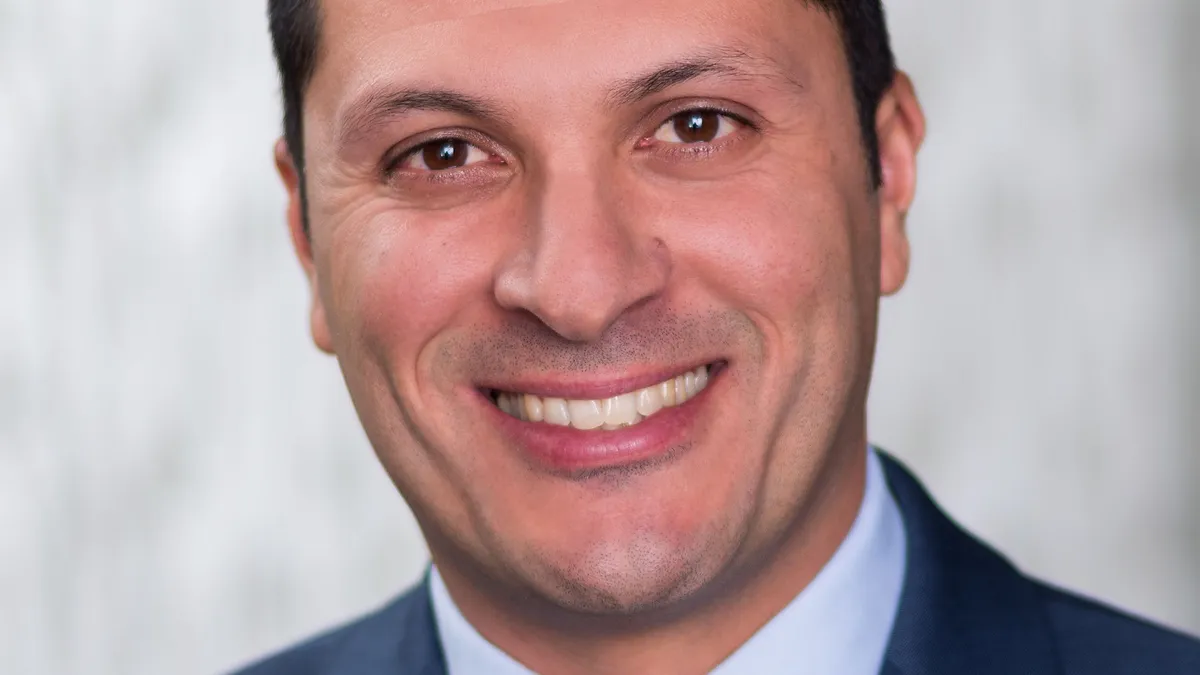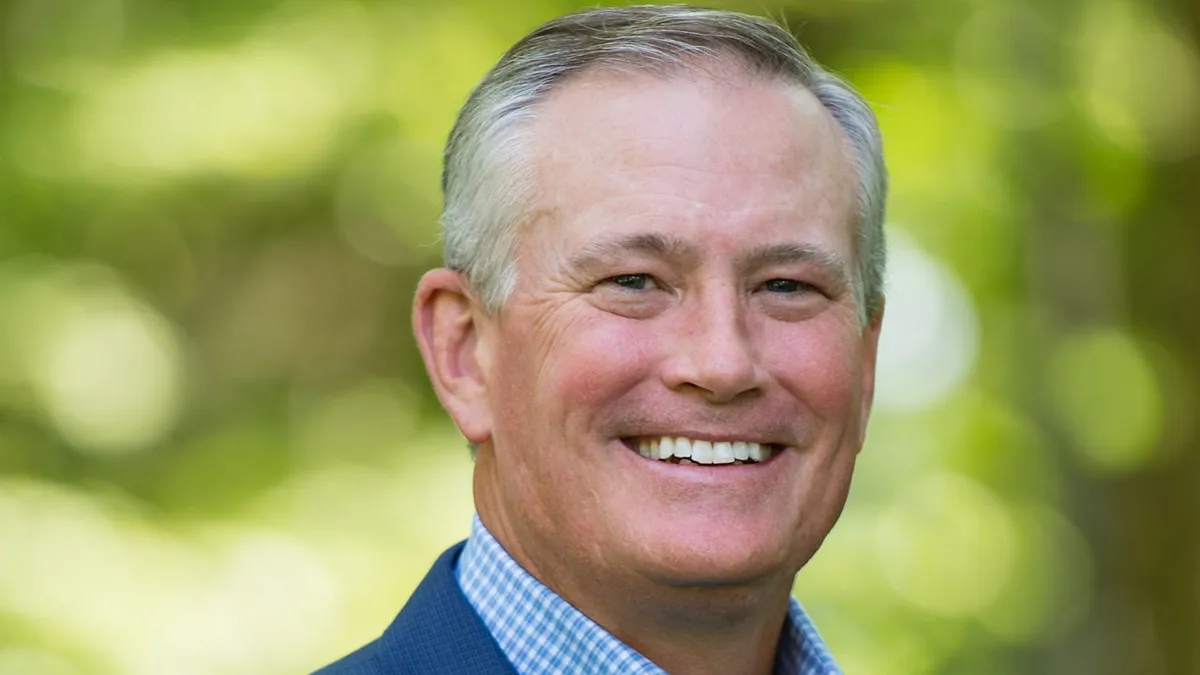Diabetes technology companies have been some of the most resilient in the medtech sector over the last two years as the coronavirus pandemic has created challenges across the industry. Companies like Dexcom, Insulet, Tandem Diabetes Care and larger Abbott Laboratories have seen their businesses grow as continuous glucose monitor and insulin pump adoption has taken off.
However, amid these success stories, Medtronic has stumbled a bit. CEO Geoff Martha told investors in November that the diabetes group lost market share again the previous quarter, and a recent FDA warning letter has cast uncertainty over the unit, likely delaying key product reviews and subsequently, their launches.
The setback comes as companies are gearing up for more growth and the market is set to see a string of new products, beginning with Insulet's Omnipod 5 insulin pump.
Ali Dianaty, vice president of product innovation and operations for Medtronic Diabetes, said that the company began working on issues brought up in the agency's warning letter following an inspection in June and July, roughly six months before Medtronic received the letter.
Dianaty said that Medtronic is communicating with the FDA and making necessary changes, but the company still has "a lot of work to do."
Amid these challenges, Dianaty said that the diabetes group is focusing on new products and strategies to keep up with the constantly growing competition in both the CGM and insulin pump markets. New focuses include developing an insulin pump patch product to compete with Insulet and, eventually, Tandem, as well as investing in direct-to-consumer advertising as the company explores delivering products more through the pharmacy channel.
"A lot [is] cooking," Dianaty said. "And I would expect that over the next three to five years, the innovation is going to continue because this market is ready for it and wants it."
This interview has been edited for clarity and brevity.
MEDTECH DIVE: On the last earnings call Martha said that the diabetes group lost some market share. Can you talk about how 2021 went for the business?
ALI DIANATY: It's kind of a tale of two cities. In places where we have our new technologies in place, we're doing very well, and in places where we don't, we're struggling because the competitive environment is so strong. Net we did fine, but generally speaking, that's how I would characterize it.
In Europe right now, where we've had the opportunity to not only launch our MiniMed 780G pump and our Guardian 4 sensor, we're doing very well. In the U.S., we're waiting to get that product approved, for obvious reasons.
In December, Medtronic announced that its diabetes group received an FDA warning letter regarding several product safety problems. How has this letter impacted operations? And has Medtronic recently communicated with the FDA?
DIANATY: By the time the warning letter came to us, we were well on our way and doing what we need to do to get past the observations from the inspection. So, the impact was already there, as noted, because we were already doing the work. I think the impact on the product portfolio is that, of course, a warning letter makes it difficult to get new products approved. We have done everything possible to accelerate clearing the warning letter and getting that work down.
We're hoping that we can get a re-inspection clearance as soon as we can because we feel like we got a good start and made progress by the time the warning letter came.
In terms of communication with the FDA, as soon as we got the warning letter, we did have a call with them and talked it through. But, typically, the way that the warning letters work is that everything is rather formal via written communication until the re-inspection happens.
What are some specific measures that have been put into place to improve the product safety concerns highlighted by the FDA?
DIANATY: The major finding is about risk assessment, and then where does that bar need to be for when you react and how do you react as a result of that bar. As you know, we actually recalled the product in 2019. At that point in time, the intent was to let people know to look at their retainer rings in their pumps, and if there was a problem, to call us and we would replace it.
The difference between what we have done ahead of the warning letter was that we decided, based on the signals, that it was better to replace the devices all out anyway. Again, that was based on looking at the risk assessments and seeing the impact we were making as a result of the actions that we've taken.
The agency is asking, "Hey, is that bar in the right place? And are you doing the risk assessments in the right way to create the actions in the right direction at the right time?" And it's hard because it's not just about the numbers. Diabetes is a complex thing to manage, and it's not just quantitative things that matter; it's qualitative, too. That's where it gets tricky because the qualitative things and creating a bar for that becomes difficult.
So, we've made suggestions to the agency as to what would be a better approach for this. It gets a little stricter as it relates to the qualitative components of it. As a result of that, the risk assessments themselves are more refined in terms of how do you do the math and come up with a conclusion. We're working through that part.
Do you have any sense of a timeline for the product review of the 780G pump and the Guardian 4 sensor?
DIANATY: We're in the middle of it; we're actively working with the agency on it. As it relates to the warning letter, we would have to submit a variance to them, asking for that approval. But we think that we need to be first and foremost further along in the warning letter itself and hear their feedback from it. We're expecting it, but we haven't seen that yet.
Based on the feedback, then we can make whatever decisions we make to pursue it. Again, we know that the FDA is inundated right now, and so, poking at those kinds of things is probably not going to be productive. We need to see where their head is and then come to an agreement with them on the next steps that we should take. If the agency sees that there's a good benefit for people to get devices like the 780G pump, I'm sure they would be open to that. But we've still got a lot of work to do.
The insulin pump competition is turning to insulin pump patches. Tandem recently announced they will be working on a patch, and Insulet just received clearance for a new patch in Omnipod 5. Is that specific product something that Medtronic is investing in and looking to develop?
DIANATY: At the J.P. Morgan conference, our CEO mentioned that we are working on a patch. In saying that, we've always looked out for them, but there's a reason why there's only one patch provider out there today, Insulet's Omnipod, because of how difficult it is to make it cost-effective — knowing how much you're throwing away every three days — and they barely got to a place where they're profitable.
Our internal dilemma has been, how do we make this good for patients and still viable to allow it to grow the right way. Because when you look at total costs for a patch, they're not small, they're hard to deal with. That's what we've been spending our time and effort on.
The semiconductor chip shortage has impacted companies in different ways across the industry. Has the shortage hit the diabetes group?
DIANATY: From our specific experience, we went from needing to purchase six months in advance to now between 53 and 85 weeks. It has gotten really, really hard.
In addition to that, it's become difficult in terms of how they as vendors are managing things and creating allocations of supplies. They realize what our mission is and who we're trying to treat because of that, and they have been open to having real debates as to how many chips we should get relative to the rest of the world. I applaud them for working with us on that front. But to say that we're out of the woods here would be a fallacy.
There are a lot of logistical things that we work on on a daily basis to make sure that we've got the supply we need, and it's been really, really hard. I think over this next year, especially in the fall, things will probably get better. Between capacity coming up and line of sight to how things are going in general — the semiconductor companies have figured out how to deal with a lot of the nuance here — things will get better. But until then, it's going to be hard.
How do you strategically approach 2022 with the uncertainty of, potentially, having other variants disrupting normal operations?
DIANATY: It's hard to predict, obviously. What we've been doing is trying to build in enough capacity. The bigger problem is somewhat of an alternative issue that comes with this, which is not being able to supply what our patients need. We've been trying to make sure that we have sufficient operational capacity alongside inventory, so that we're there for patients when they need us and not have any supply discontinuities, irrespective of another variant coming on.
Prior to the pandemic, it was always about just-in-time, not carrying an excess amount of inventory so it goes stale. Now, it's more about never losing the opportunity to serve a patient and focusing on that as the key driver for what we're doing.
Does the disruptions to inventory, whether it's chips or other pandemic problems, impact what a launch of a new product like the 780G will look like?
DIANATY: We keep hearing it from our competitors as well — all of them are saying, "We are going to start out with a limited launch." All of them. It's very likely that aside from building up inventories, they have these other constraints where the last thing you want to do is deliver a new product to somebody and then go right onto backorder within three months. So, you have to be clear on your inventory position before you start opening up more regions or more doors for that.
As an example, for our Guardian 4 sensor, even though it's been approved in Europe, we've been monitoring that very, very carefully and choosing select regions to launch it in to not have ridiculous amounts of supply constraints. As the inventory builds, we expand. I would anticipate that we would see that over this next year, unfortunately.
DTC advertising is something that is growing in medtech overall, but also specifically in diabetes tech. Does Medtronic plan on utilizing DTC advertising more for its diabetes business?
DIANATY: We tried that about a year/year and a half ago. You have to have the right product to support being on a commercial. Meaning, how it gets prescribed and how it gets us is very straightforward and more often than not through the pharmacy.
Part of the reason we decided to move on InPen, which makes smart insulin pens, was to get more accustomed to working through the pharmacy because today most of what we sell is through the durable medical equipment channel, and that doesn't lend itself to direct-to-consumer as readily. As you see us increasing our pharmacy footprint, you're going to see us doing a lot more direct-to-consumer advertising.
There's actually a lot of work happening behind the scenes on that front, but the product portfolio has to match the needs appropriately so that we get value out of it.

















